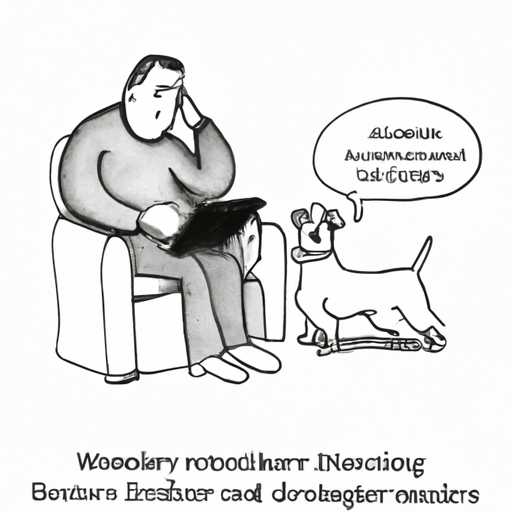Understanding Your Dog’s Digestive System
Just like in humans, your dog’s stomach can make noises due to a variety of reasons. These sounds, known as borborygmi, are simply a result of gas moving through the intestines. It’s completely normal, and most of the time, it’s no cause for concern. However, if your dog’s stomach noises are accompanied by other symptoms, it could indicate a more serious problem.
The digestive system of a dog works much like ours. They eat food, it travels down the esophagus to the stomach, where digestive enzymes break it down. From there, the digested food moves into the small intestine, where nutrients are absorbed. Any undigested food is then passed into the large intestine, where water is absorbed, and the remaining waste is excreted.
Common Causes of Stomach Noises in Dogs
While stomach noises are usually harmless, they can sometimes indicate an underlying health issue. Here are some common causes:
- Hunger: Just like in humans, a dog’s stomach can rumble when they’re hungry. The solution is simple — feed your dog!
- Eating too quickly: If your dog eats too fast, they can swallow air, which can lead to stomach noises.
- Dietary indiscretion: Dogs are notorious for eating things they shouldn’t. If your dog has eaten something unusual, their stomach may make noises as it tries to digest it.
- Gastrointestinal upset: Conditions like gastritis or inflammatory bowel disease can cause stomach noises in dogs.
When to Be Concerned
While most stomach noises are normal, there are some signs that might indicate a more serious problem:
- Loss of appetite
- Vomiting
- Diarrhea
- Lethargy
- Weight loss
If your dog is exhibiting any of these symptoms, it’s a good idea to consult with a vet.
Prevention and Treatment
Preventing stomach noises in dogs largely involves proper dietary management. Here are some tips:
- Feed your dog a balanced diet
- Avoid feeding your dog table scraps
- Make sure your dog doesn’t eat too quickly
- Keep an eye on what your dog is eating outside of meal times
If your dog’s stomach noises are due to an underlying health condition, treatment may involve medication or dietary changes.
What to Expect at the Vet
If you’re concerned about your dog’s stomach noises and decide to take them to the vet, here’s what you can expect:
| Stage | Description |
|---|---|
| Initial Examination | The vet will likely start by asking you about your dog’s diet, eating habits, and any other symptoms. |
| Physical Examination | The vet may then examine your dog, paying close attention to their abdomen. |
| Further Testing | If necessary, the vet may recommend further testing, such as blood tests or imaging studies. |
FAQs
Q: How often should a dog’s stomach make noise?
A: It’s normal for a dog’s stomach to make noises every now and then. However, if it’s persistent, it could be a sign of an issue.
Q: Can I give my dog something to stop the noise?
A: It’s best to consult with a vet before giving your dog any medications.
Q: Do certain dog breeds have more stomach issues?
A: Some breeds are more prone to gastrointestinal issues, but any dog can experience them.
Q: What if my dog’s stomach is making noises but they’re acting normal?
A: If your dog is acting normal, eating well, and not showing any signs of illness, the noises are probably nothing to worry about. If you’re still concerned, it doesn’t hurt to consult with a vet.
Q: Can stress cause a dog’s stomach to make noise?
A: Yes, stress can cause a variety of gastrointestinal issues in dogs, including stomach noises.



